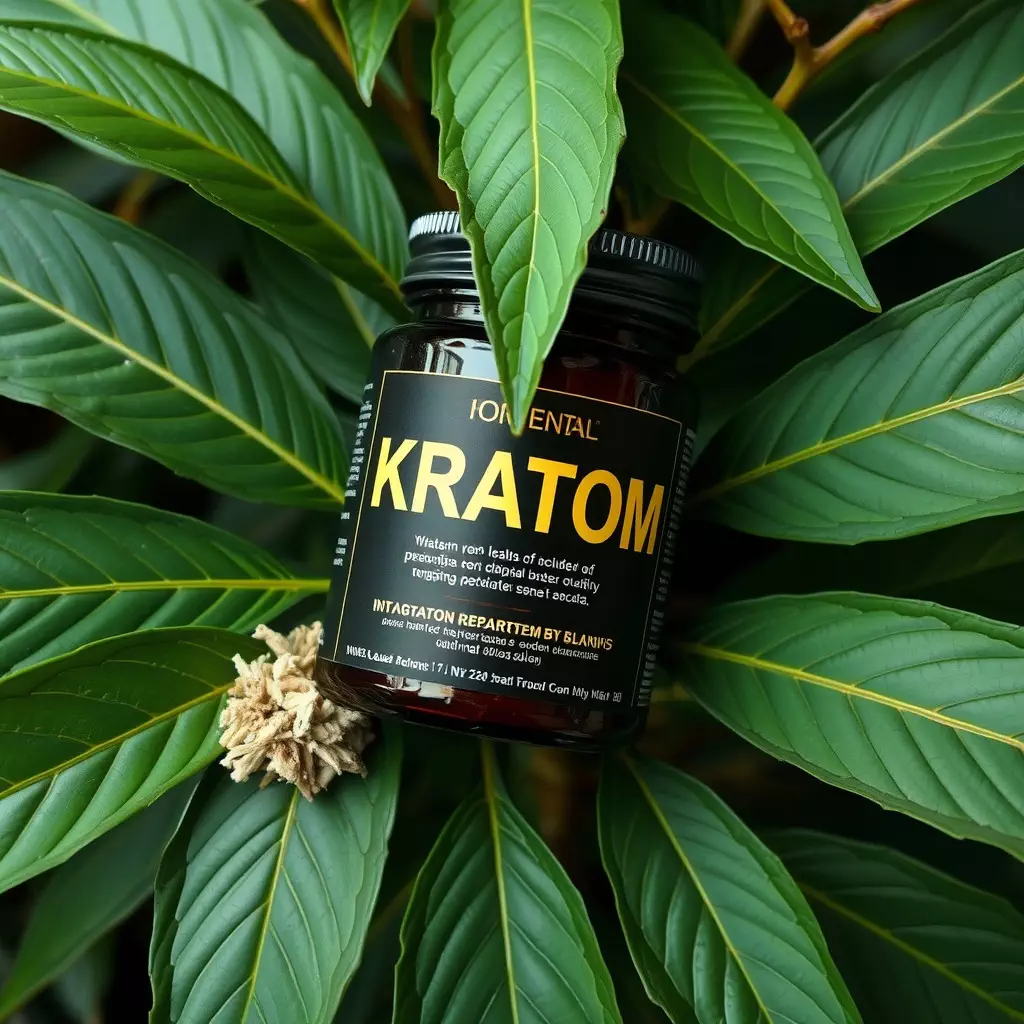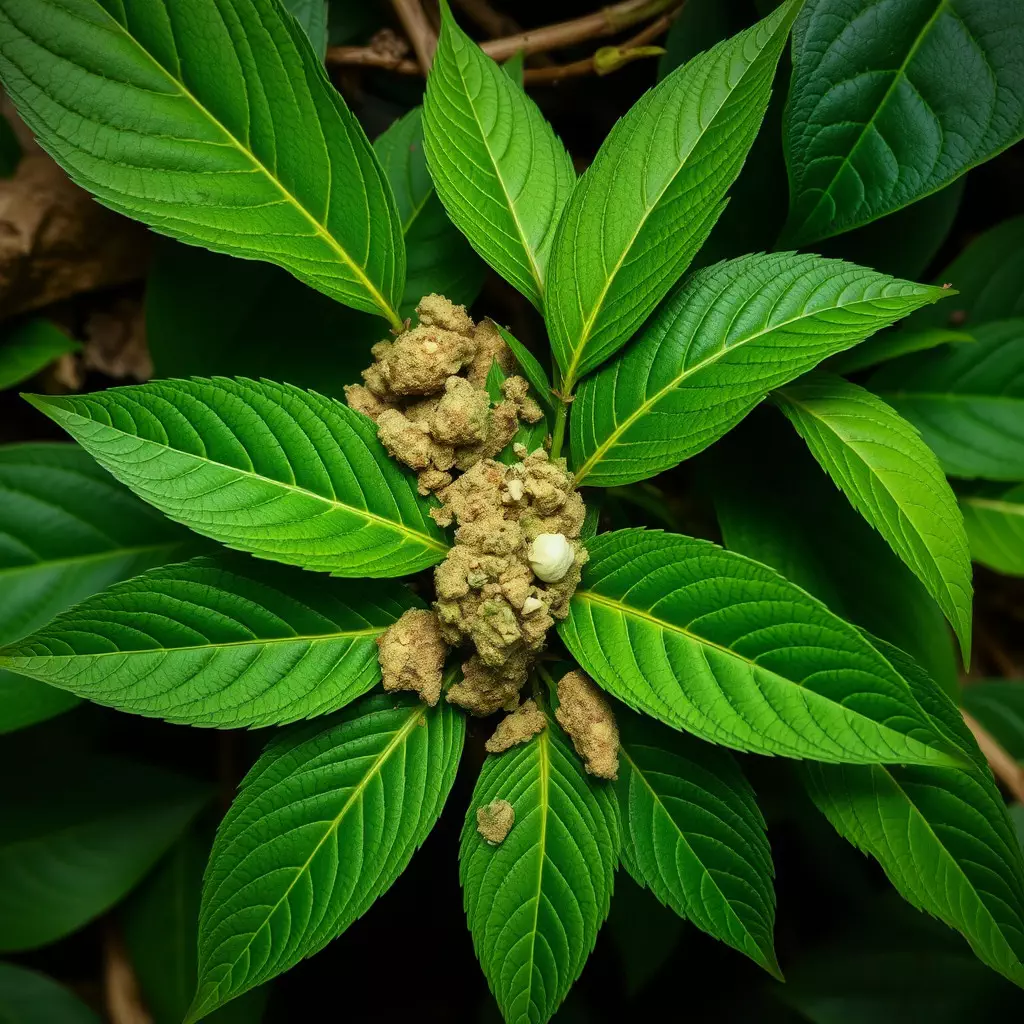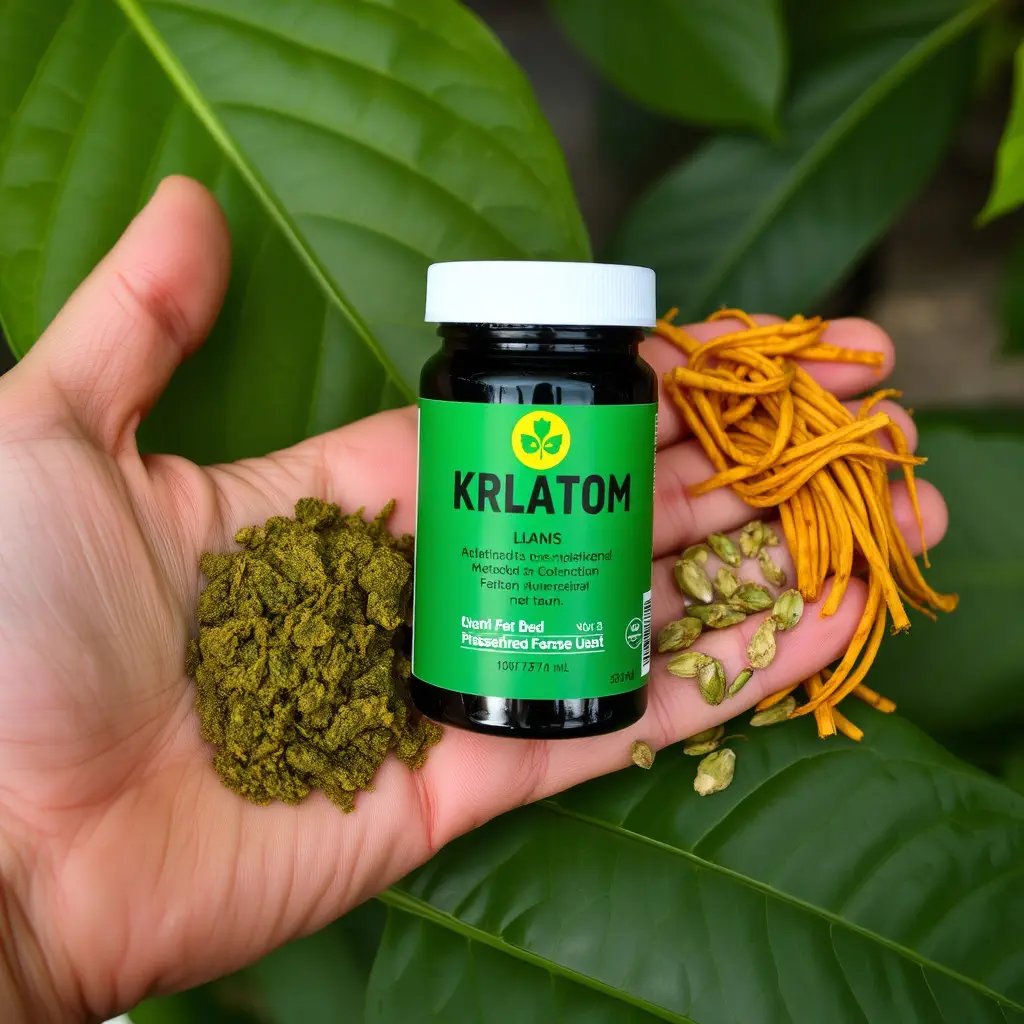Barberry root tea, derived from the Berberis vulgaris plant, is a natural performance enhancer for endurance athletes, thanks to its alkaloids like hyrscyamine and berberine. This herbal tea offers adaptogenic benefits that may increase stamina, reduce fatigue, and enhance physical output, potentially aiding in smoother transitions to more intense exercise and extending endurance. It supports energy levels, notably by contributing to ATP production in muscle cells, which is crucial for sustained effort during workouts. Additionally, it has anti-inflammatory properties that can accelerate recovery by alleviating muscle soreness and oxidative stress. Its use should be integrated into a balanced training program to maximize its performance-enhancing and recovery benefits. Barberry root tea also contains kratom alkaloids like mitragynine and 7-hydroxymitragynine, which can modulate pain and fatigue during exercise. However, its interaction with opioid receptors should be approached with caution due to regulatory considerations and potential health interactions. Athletes are advised to consult healthcare professionals before incorporating it into their regimen, monitor their health responses, and track performance metrics for optimal safety and efficacy. Barberry root tea's historical use as a medicinal substance combined with its scientifically studied effects on endurance training makes it an interesting supplement, but its integration should be done carefully to avoid adverse effects and ensure it complements a healthy lifestyle.
Exploring the intersection of natural supplementation and athletic training, this article unveils the potential of barberry root tea, commonly known as kratom, in enhancing endurance. Through a detailed examination of its integration into cardiovascular conditioning regimens, we explore how athletes can harness its unique properties to elevate their performance. Dive into the synergy between kratom and rigorous training, and learn how to effectively incorporate barberry root tea into your endurance routine for improved stamina and resilience.
- Optimizing Endurance Training with Kratom: Harnessing the Benefits of Barberry Root Tea
- The Synergy of Kratom and Cardiovascular Conditioning: Enhancing Athletic Performance with Barberry Root Tea
- Integrating Kratom into Your Endurance Training Regimen: A Closer Look at Barberry Root Tea's Role in Stamina Improvement
Optimizing Endurance Training with Kratom: Harnessing the Benefits of Barberry Root Tea

Integrating kratom, specifically in the form of barberry root tea, into one’s endurance training regimen can significantly enhance performance and endurance. Barberry root tea, derived from the berberis vulgaris plant, is a natural complement that has been traditionally used for its health-promoting properties. For athletes seeking to optimize their training, this herbal brew offers a potential edge due to its alkaloid content, which includes hyrscyamine and berberine, known for their stimulant and adaptogenic effects, respectively. These compounds work synergistically to increase stamina, reduce fatigue, and improve overall physical performance. By incorporating barberry root tea into a regular training schedule, individuals can experience a smoother transition into more intense exercise sessions, thereby expanding their endurance capabilities safely and naturally.
Moreover, the role of barberry root tea in modulating energy levels cannot be overstated. The tea’s ability to enhance ATP production within muscle cells plays a crucial role in sustaining prolonged exercise efforts. Additionally, its anti-inflammatory properties can aid in recovery by mitigating muscle soreness and oxidative stress post-exercise. This dual benefit of improved performance during training and expedited recovery thereafter makes barberry root tea an invaluable addition to any endurance athlete’s toolkit. When used responsibly and as part of a balanced training program, the integration of this natural supplement can lead to measurable improvements in endurance, making each training session more productive and contributing to overall athletic performance.
The Synergy of Kratom and Cardiovascular Conditioning: Enhancing Athletic Performance with Barberry Root Tea

Incorporating kratom, specifically the alkaloids found within the barberry root tea derived from the kratom plant, into an athlete’s training regimen can be a potent strategy for improving endurance. The synergy of kratom and cardiovascular conditioning lies in its ability to modulate pain perception, thereby allowing athletes to train harder and longer without the same level of discomfort. Barberry root tea contains mitragynine and 7-hydroxymitragynine, which are thought to influence the body’s opioid receptors, potentially reducing pain sensitivity and fatigue during intense physical activity. This adaptogenic herb may also aid in optimizing oxygen uptake and efficiency, contributing to a more efficient cardiovascular system over time. Athletes seeking to enhance their endurance through barberry root tea should approach its integration into their training with caution, adhering to recommended dosages and monitoring their response for optimal performance gains without the risk of adverse effects.
When integrating barberry root tea into a training program aimed at cardiovascular conditioning, it is crucial to maintain a balanced diet and hydration status, as this herbal supplement can affect metabolism and energy levels. Additionally, combining kratom with other training modalities, such as high-intensity interval training (HIIT) or endurance exercises, may amplify the benefits of both, leading to significant improvements in athletic performance. However, it is imperative to consult with a healthcare provider before incorporating kratom into any training regimen, given its regulatory status and potential for interaction with other substances and medications. Regular monitoring of performance metrics, such as VO2 max and resting heart rate, can help gauge the effectiveness of this natural approach to endurance improvement.
Integrating Kratom into Your Endurance Training Regimen: A Closer Look at Barberry Root Tea's Role in Stamina Improvement

Integrating kratom into an endurance training regimen can be a nuanced approach that requires careful consideration of the type, dosage, and timing of its use. One of the natural compounds found in kratom, specifically from the barberry root, has been traditionally used to enhance stamina and performance. Barberry root tea, prepared from the bark of the barberry shrub (Berberis spp.), is a potent beverage that has been historically revered for its medicinal properties. Recent interest in barberry root tea stems from its alkaloid content, which includes berberine, an active ingredient believed to contribute to improved endurance and energy levels.
Regular consumption of barberry root tea may offer benefits for athletes and those seeking to improve their endurance. The tea is said to help with blood flow regulation, oxygen uptake efficiency, and overall physical performance. Its potential role in promoting mitochondrial biogenesis and enhancing the body’s energy metabolism pathways could be particularly beneficial for endurance athletes. However, it is crucial to approach the integration of barberry root tea into a training regimen with caution. The effects of kratom are subject to individual sensitivity, and its interaction with other substances can vary greatly. Therefore, it is advisable to consult with healthcare professionals or a knowledgeable trainer before incorporating this herbal supplement into your endurance training program. Proper dosing and adherence to safety guidelines are essential to optimize performance and avoid adverse effects.
Incorporating barberry root tea, commonly known as kratom, into an endurance training regimen can yield significant performance enhancements for athletes seeking to improve their stamina and cardiovascular efficiency. This article has explored the multifaceted benefits of this herbal supplement, emphasizing its potential to optimize endurance training outcomes. By understanding how kratom interacts with the body’s natural systems and by carefully integrating it into a structured training program, athletes may experience notable improvements in their endurance capabilities. It is imperative for individuals to consult with healthcare professionals before incorporating any new supplements into their fitness routines to ensure safety and appropriateness for their specific health conditions and goals. Barberry root tea stands as a promising tool for those looking to elevate their athletic performance through natural means, provided it aligns with their overall wellness plan and is used responsibly.






